 Technology peripherals
Technology peripherals
 AI
AI
 How does AI-powered Windows shape the future? Microsoft chief product officer gives his understanding
How does AI-powered Windows shape the future? Microsoft chief product officer gives his understanding
How does AI-powered Windows shape the future? Microsoft chief product officer gives his understanding
May 25th: On Wednesday, local time, the second highlight of Microsoft's annual developer conference was staged. Microsoft Chief Product Officer Panos Panai took the stage to demonstrate to the world "the Windows operating system that will shape the future."
Panai stood in the audience and replayed the Windows Copilot demonstration video shown by Microsoft CEO Nadella yesterday. Facing the expressionless audience, Panay said: "For people in this room, it is very natural to be able to use AI, Bing, and ChatGPT, but for more people, they have only heard of this Things, just like when we tried to understand what the Internet was like."
Because these users are not familiar with Windows settings and features, they cannot give instructions to the AI. Because of this, Microsoft's Windows Copilot will not only respond to users' needs, but will also proactively guess what functions users may need and proactively provide users with a series of options.
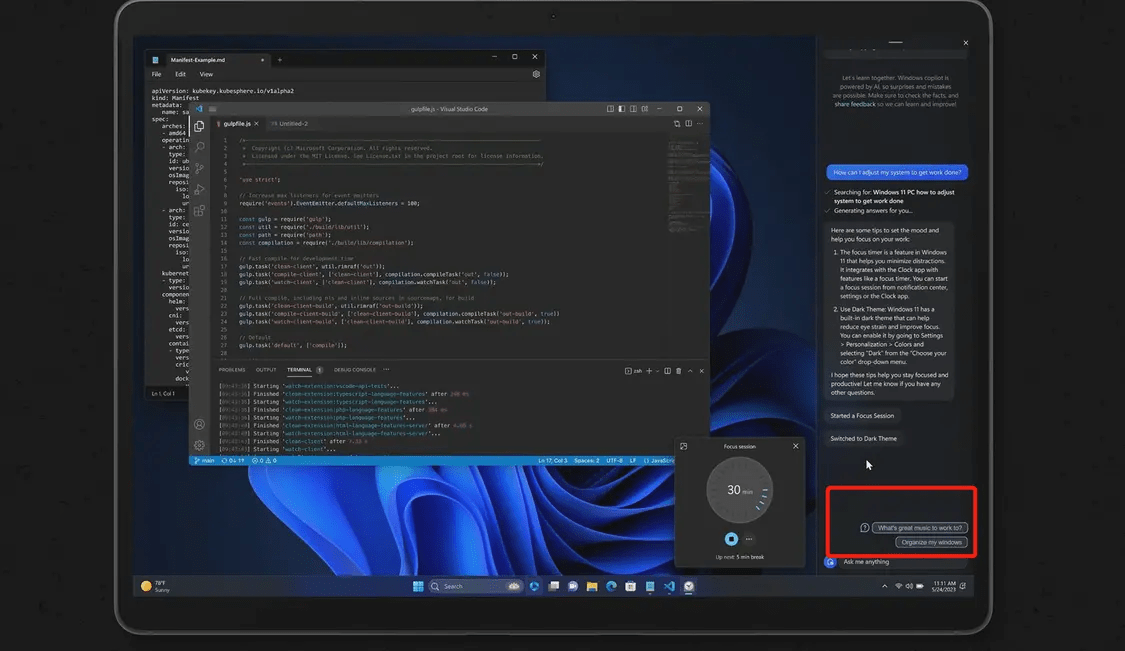
(Pay attention to the prompt box in the lower right corner, source: live video)
Another example is that the user can select a piece of text in Notepad and send it to Windows Copilot. Then the AI will actively ask whether it needs to "explain", "rewrite" or "summarize" the paragraph.
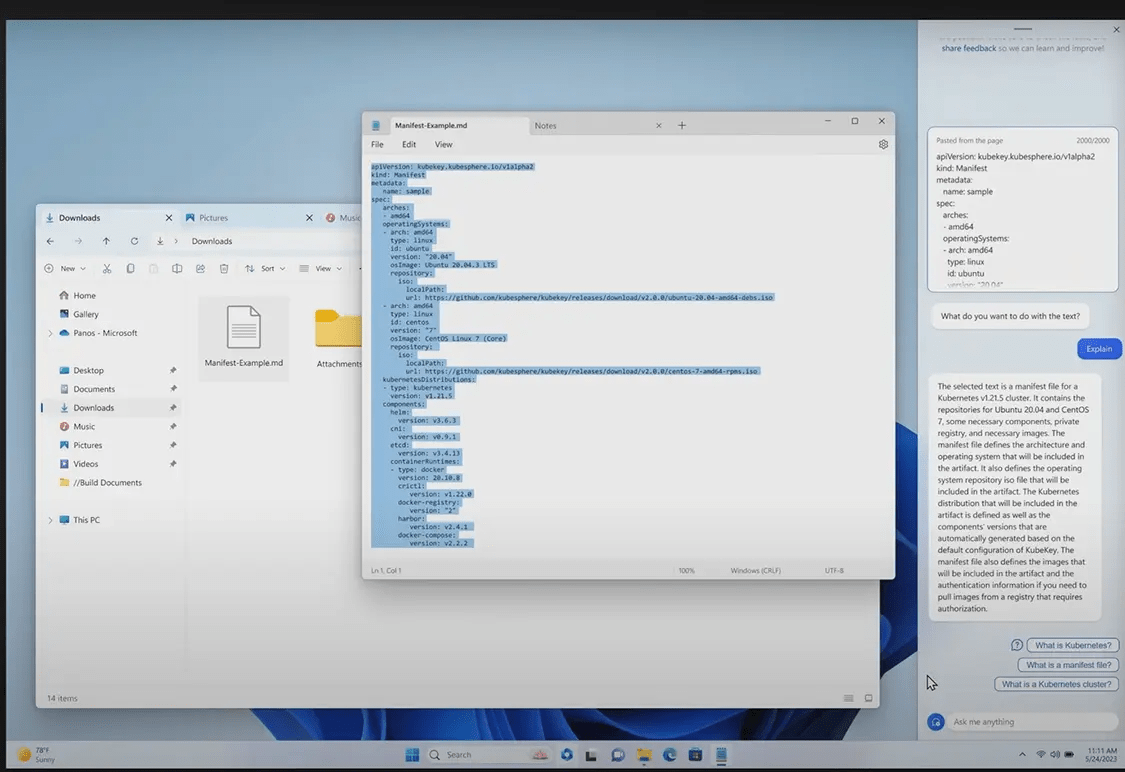
(Source: live video)
The same thing applies to audio. Users can drop the recording into the sidebar and then ask AI to transcribe and translate the text.
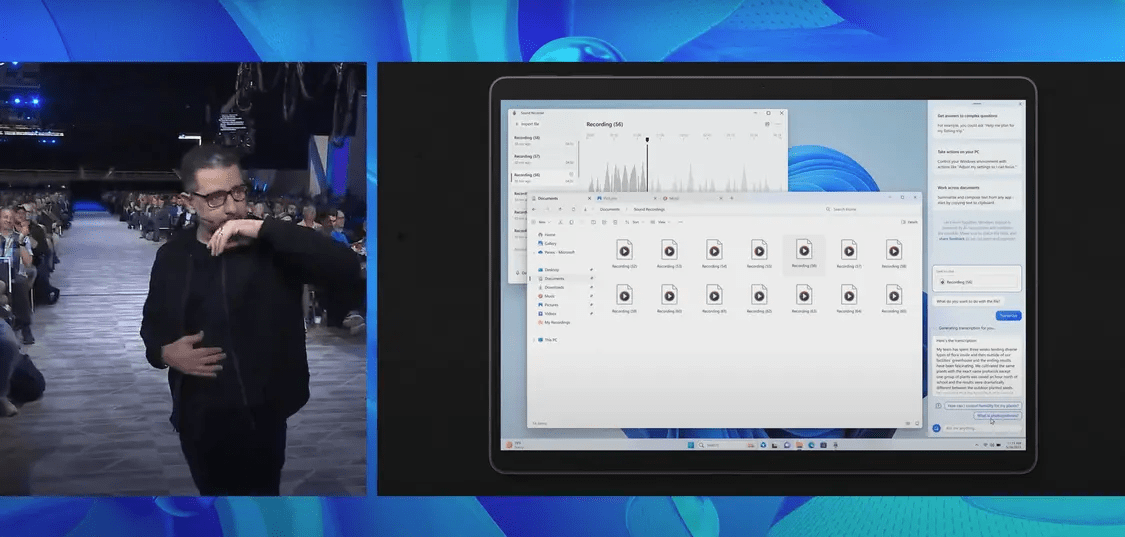
(Source: live video)
Of course, this is just the beginning for AI to reshape the narrative of human use of computer systems.
Panay pointed out that Microsoft has been emphasizing various plug-ins recently, but in fact, the current Windows platform can already support the most complex AI applications. For developers, that day is almost here, and Windows Copilot will appear on preview versions of Windows 11 in June.
Internet giants, who have always had a keen sense of smell, have already begun a new round of layout. Panay said that software including Spotify, Snapchat, and Facebook Messenger have all entered Microsoft’s PC App Store. You must know that these software were just mobile application software two years ago. The emergence of AI has brought more possibilities to people. Now they only need to use a computer to continue their workflow, and their mobile phones can be placed in their pockets.
Also present at Wednesday’s meeting was Will Cathcart, director of Meta’s messaging app WhatsApp. As the world's largest messaging software, WhatsApp is collaborating with Microsoft to provide a new messaging experience for large-screen devices. Thanks to improvements in computing power, the PC version of WhatsApp video calls can now offer a variety of features including background blur.
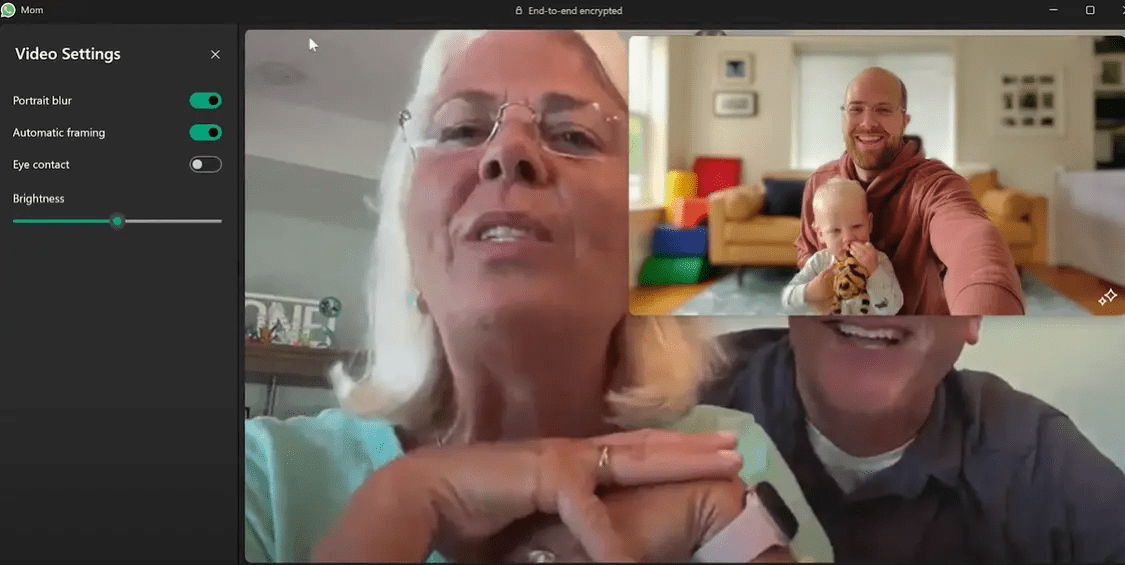
(Source: live video)
Microsoft released the developer control center Dev Home this week, which is very important for key developers in the AI application ecosystem. Simply put, this tool can help developers set up and use Windows for software development more conveniently, including setting up a development environment for the machine, connecting to GitHub and related repositories, installing tools, etc. This tool naturally integrates with GitHub Copilot, a Microsoft product, with the ability to write code, fix errors, and add comments.
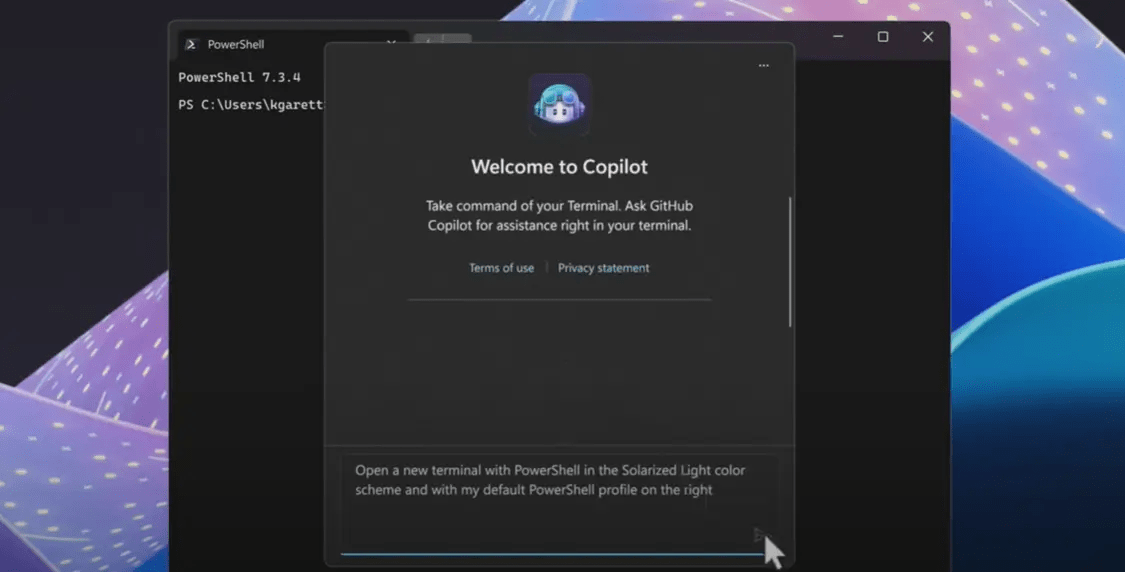
(Source: live video)
Microsoft also provides developers with a series of tools to integrate Copilot into their own software in various forms.
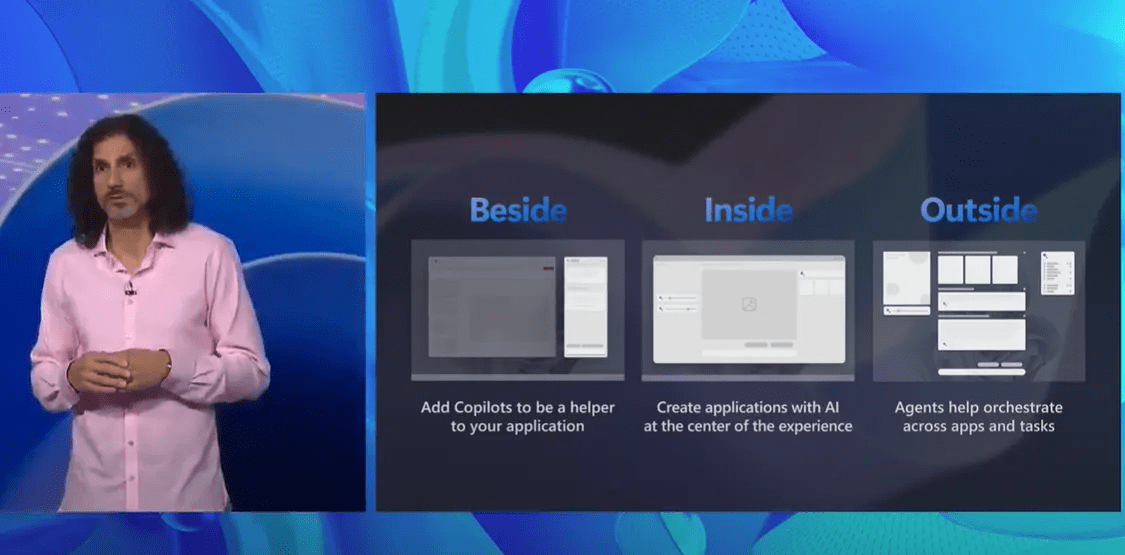
(Source: live video)
At Wednesday’s press conference, Microsoft also announced some new features, including Restore, which can help users “reinstall all apps with one click” after installing a new machine, and a summary of App Store user reviews powered by AI. In addition, Microsoft will also launch AI Hub on the App Store in the near future to show users what a series of AI applications can do, thereby motivating more people to start their AI journey.
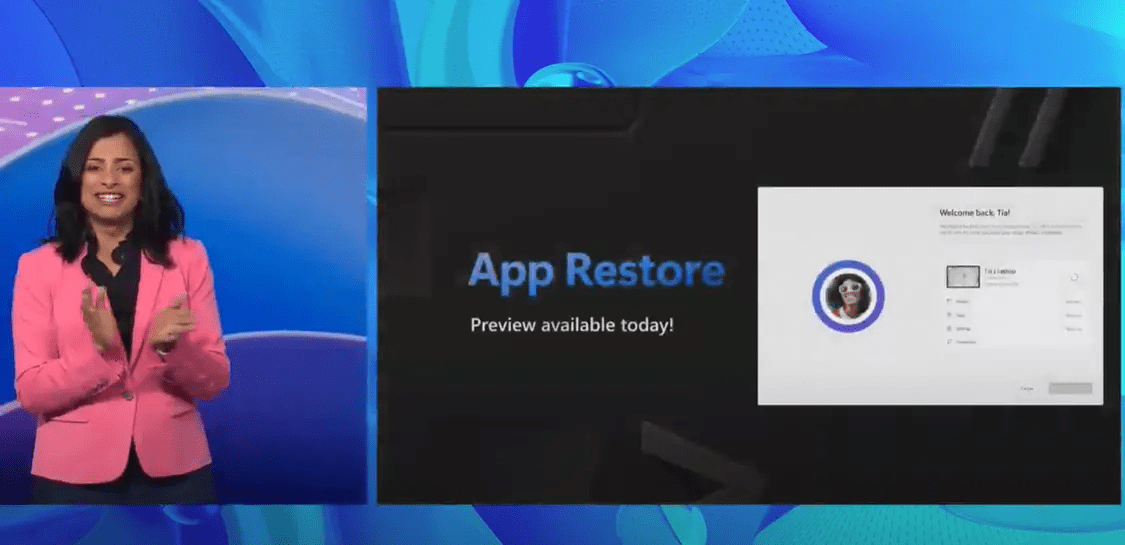

(Source: live video)
It is worth mentioning that before Panai’s debut, Microsoft’s product team also demonstrated a series of new features of 365 Copilot, including Microsoft Mesh spanning AI, Metaverse, VR and other concepts. Previously, Microsoft has launched the "Virtual Avatar" function, which uses avatars to help workers in front of the camera work more freely.
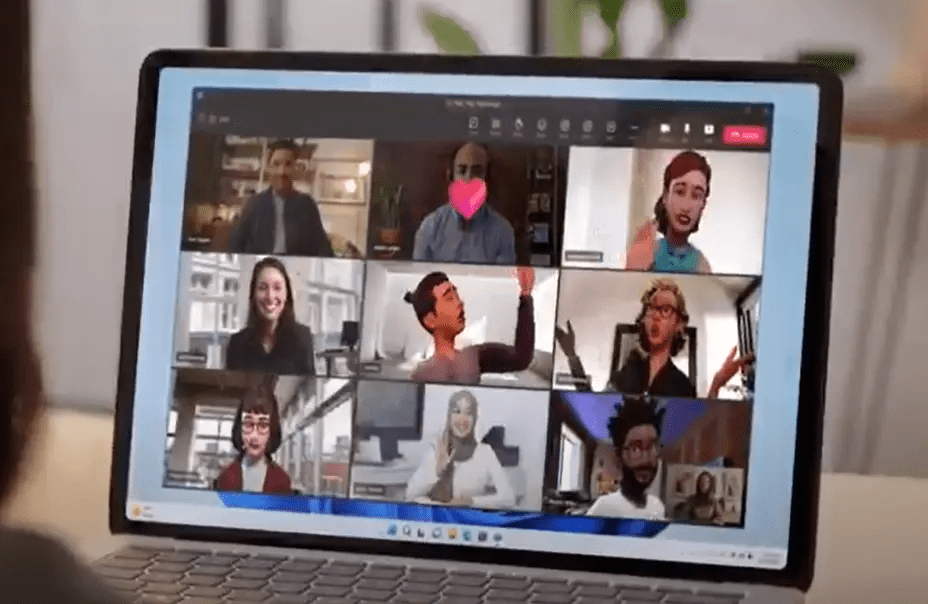
(Source: live video)
And Mesh goes a step further and directly enters the category of the metaverse. At the same time, Microsoft has also helped many well-known institutions around the world create exclusive virtual online spaces.

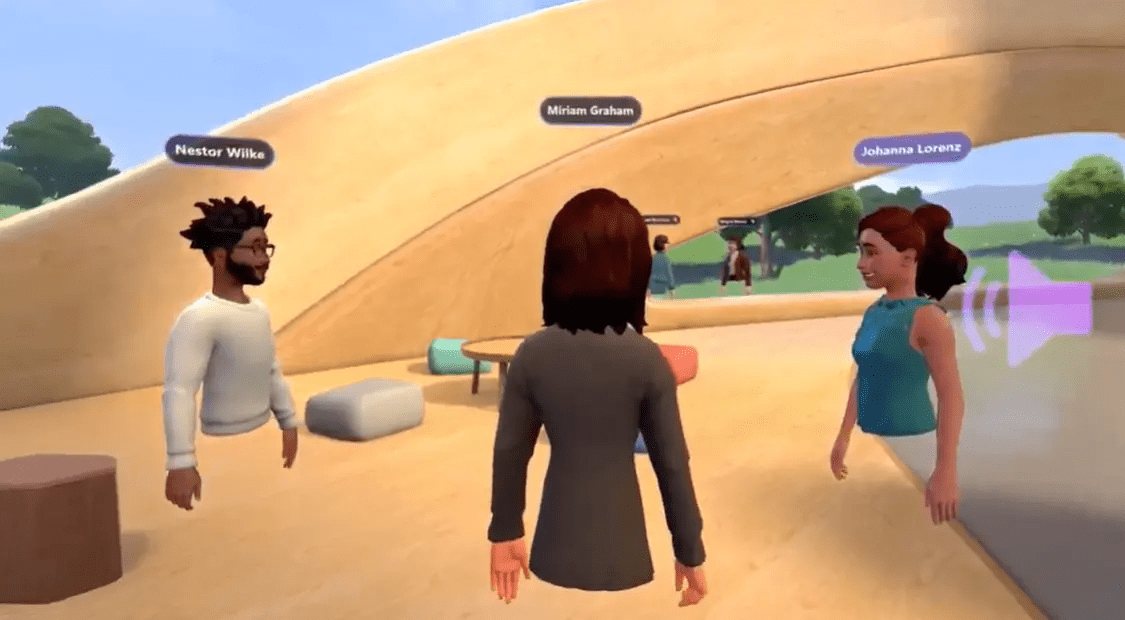
(Source: live video)
However, like Meta's Horizon Worlds, Microsoft's "Metaverse Avatar" is also only half-body, which at least shows that the current level of AI is not enough to solve the "too ugly" problem of the Metaverse.
[Source: Financial Associated Press]
The above is the detailed content of How does AI-powered Windows shape the future? Microsoft chief product officer gives his understanding. For more information, please follow other related articles on the PHP Chinese website!

Hot AI Tools

Undresser.AI Undress
AI-powered app for creating realistic nude photos

AI Clothes Remover
Online AI tool for removing clothes from photos.

Undress AI Tool
Undress images for free

Clothoff.io
AI clothes remover

AI Hentai Generator
Generate AI Hentai for free.

Hot Article

Hot Tools

Notepad++7.3.1
Easy-to-use and free code editor

SublimeText3 Chinese version
Chinese version, very easy to use

Zend Studio 13.0.1
Powerful PHP integrated development environment

Dreamweaver CS6
Visual web development tools

SublimeText3 Mac version
God-level code editing software (SublimeText3)

Hot Topics
 1377
1377
 52
52
 How to create an oracle database How to create an oracle database
Apr 11, 2025 pm 02:33 PM
How to create an oracle database How to create an oracle database
Apr 11, 2025 pm 02:33 PM
Creating an Oracle database is not easy, you need to understand the underlying mechanism. 1. You need to understand the concepts of database and Oracle DBMS; 2. Master the core concepts such as SID, CDB (container database), PDB (pluggable database); 3. Use SQL*Plus to create CDB, and then create PDB, you need to specify parameters such as size, number of data files, and paths; 4. Advanced applications need to adjust the character set, memory and other parameters, and perform performance tuning; 5. Pay attention to disk space, permissions and parameter settings, and continuously monitor and optimize database performance. Only by mastering it skillfully requires continuous practice can you truly understand the creation and management of Oracle databases.
 How to create oracle database How to create oracle database
Apr 11, 2025 pm 02:36 PM
How to create oracle database How to create oracle database
Apr 11, 2025 pm 02:36 PM
To create an Oracle database, the common method is to use the dbca graphical tool. The steps are as follows: 1. Use the dbca tool to set the dbName to specify the database name; 2. Set sysPassword and systemPassword to strong passwords; 3. Set characterSet and nationalCharacterSet to AL32UTF8; 4. Set memorySize and tablespaceSize to adjust according to actual needs; 5. Specify the logFile path. Advanced methods are created manually using SQL commands, but are more complex and prone to errors. Pay attention to password strength, character set selection, tablespace size and memory
 How to write oracle database statements
Apr 11, 2025 pm 02:42 PM
How to write oracle database statements
Apr 11, 2025 pm 02:42 PM
The core of Oracle SQL statements is SELECT, INSERT, UPDATE and DELETE, as well as the flexible application of various clauses. It is crucial to understand the execution mechanism behind the statement, such as index optimization. Advanced usages include subqueries, connection queries, analysis functions, and PL/SQL. Common errors include syntax errors, performance issues, and data consistency issues. Performance optimization best practices involve using appropriate indexes, avoiding SELECT *, optimizing WHERE clauses, and using bound variables. Mastering Oracle SQL requires practice, including code writing, debugging, thinking and understanding the underlying mechanisms.
 How to add, modify and delete MySQL data table field operation guide
Apr 11, 2025 pm 05:42 PM
How to add, modify and delete MySQL data table field operation guide
Apr 11, 2025 pm 05:42 PM
Field operation guide in MySQL: Add, modify, and delete fields. Add field: ALTER TABLE table_name ADD column_name data_type [NOT NULL] [DEFAULT default_value] [PRIMARY KEY] [AUTO_INCREMENT] Modify field: ALTER TABLE table_name MODIFY column_name data_type [NOT NULL] [DEFAULT default_value] [PRIMARY KEY]
 What are the integrity constraints of oracle database tables?
Apr 11, 2025 pm 03:42 PM
What are the integrity constraints of oracle database tables?
Apr 11, 2025 pm 03:42 PM
The integrity constraints of Oracle databases can ensure data accuracy, including: NOT NULL: null values are prohibited; UNIQUE: guarantee uniqueness, allowing a single NULL value; PRIMARY KEY: primary key constraint, strengthen UNIQUE, and prohibit NULL values; FOREIGN KEY: maintain relationships between tables, foreign keys refer to primary table primary keys; CHECK: limit column values according to conditions.
 Detailed explanation of nested query instances in MySQL database
Apr 11, 2025 pm 05:48 PM
Detailed explanation of nested query instances in MySQL database
Apr 11, 2025 pm 05:48 PM
Nested queries are a way to include another query in one query. They are mainly used to retrieve data that meets complex conditions, associate multiple tables, and calculate summary values or statistical information. Examples include finding employees above average wages, finding orders for a specific category, and calculating the total order volume for each product. When writing nested queries, you need to follow: write subqueries, write their results to outer queries (referenced with alias or AS clauses), and optimize query performance (using indexes).
 How to configure Debian Apache log format
Apr 12, 2025 pm 11:30 PM
How to configure Debian Apache log format
Apr 12, 2025 pm 11:30 PM
This article describes how to customize Apache's log format on Debian systems. The following steps will guide you through the configuration process: Step 1: Access the Apache configuration file The main Apache configuration file of the Debian system is usually located in /etc/apache2/apache2.conf or /etc/apache2/httpd.conf. Open the configuration file with root permissions using the following command: sudonano/etc/apache2/apache2.conf or sudonano/etc/apache2/httpd.conf Step 2: Define custom log formats to find or
 What does oracle do
Apr 11, 2025 pm 06:06 PM
What does oracle do
Apr 11, 2025 pm 06:06 PM
Oracle is the world's largest database management system (DBMS) software company. Its main products include the following functions: relational database management system (Oracle database) development tools (Oracle APEX, Oracle Visual Builder) middleware (Oracle WebLogic Server, Oracle SOA Suite) cloud service (Oracle Cloud Infrastructure) analysis and business intelligence (Oracle Analytics Cloud, Oracle Essbase) blockchain (Oracle Blockchain Pla



